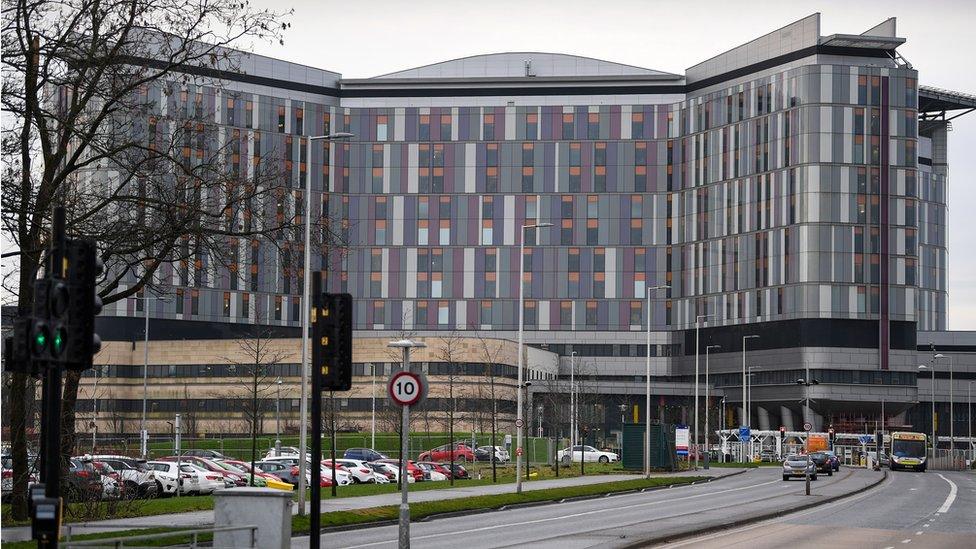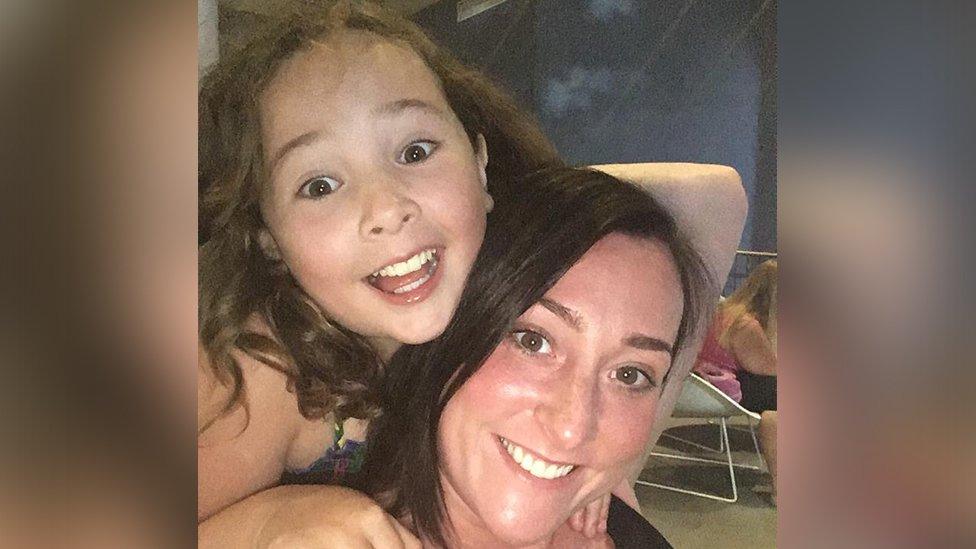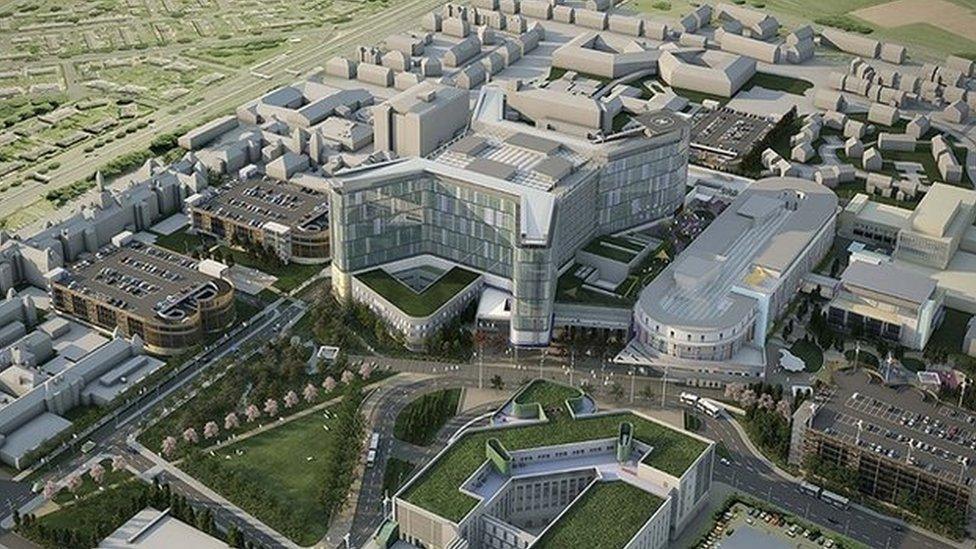Glasgow health board to take legal action over hospital contractor
- Published

NHS Greater Glasgow and Clyde has instructed legal action against a contractor involved in the construction of its biggest hospital.
Brookfield Multiplex was responsible for the design and construction of the £575m Queen Elizabeth University Hospital (QEUH) complex in Glasgow.
There have been problems at the campus since it opened in 2015.
Lawyers have been instructed to raise court proceedings against the contractor "as a matter of urgency".
Public inquiry planned
MacRoberts LLP are acting on behalf of the health board, according to official papers.
A public inquiry is expected to look at how the design, handover and maintenance contributed to ineffective infection control at the QEUH complex.
It will also cover the new children's hospital in Edinburgh, which also involved Brookfield Multiplex.
This was due to open in 2017, but will now not be ready until next autumn at the earliest after serious problems with the ventilation system were uncovered.
Chief executive at NHS Glasgow and Greater Clyde, Jane Grant, confirmed that the board had agreed the legal move but she added no further comment would be made about the proceedings.
In brief: The trials of Scotland's super hospital
Last month, NHS Greater Glasgow and Clyde was placed in "special measures" following issues over infection prevention, management and control at the hospitals.
In January it emerged that two patients at the QEUH had died after contracting a fungal infection linked to pigeon droppings.
In November it came to light that two children who had died in 2017 at the Royal Hospital for Children (RHC), which is part of the complex, were treated on a ward affected by water contamination.
That year it was also announced that cladding similar to that used on Grenfell Tower would be replaced, at a cost to the taxpayer of £6m.
In 2018 a panel fell from the 10th floor of the QEUH, shattering near the front entrance. No-one was injured, but safety netting was erected around the hospital.
Reports claimed panels had fallen from the building on at least three occasions since it opened. The health board said an investigation into what caused the fall was inconclusive.

10-year-old Milly Main, pictured here with her mother, died in 2017
In 2017, 10-year-old Milly Main was recovering from leukaemia at the Royal Hospital for Children.
But her Hickman line, a catheter used to administer drugs, became infected. Milly went into toxic shock and died days later.
Her family say they were kept in the dark about a potential link to contaminated water problems at the hospital.
NHS Greater Glasgow and Clyde insisted it was impossible to determine the source of Milly's infection because there was no requirement to test the water supply at the time.
At the end of last month, the board was placed in "special measures".
Apology to families
Health Secretary Jeane Freeman said stage four of the NHS Board Performance Escalation Framework was necessary to implement because of the issues over infection prevention and control.
The move in effect means an oversight board is in place, chaired by chief nursing officer Prof Fiona McQueen.
Both NHS Greater Glasgow and Clyde and Ms Freeman have apologised to the parents of two children who died at the hospital.
Three-year-old Mason Djemat, who was being treated for a rare genetic disease, died on 9 August 2017. Milly died three weeks later while recovering from leukaemia treatment.
Both were treated on a ward affected by water contamination at the Royal Hospital for Children.
Jane Grant, chief executive of NHS GGC, said "Since its opening, a number of issues have arisen around the operational effectiveness of the hospital which have impacted on the seamless delivery of safe and effective healthcare.
"I am sorry for the distress this has caused."
She added that she had commissioned three reviews, which had considered capacity, facilities and clinical outcomes at the hospitals.
They had "confirmed a number of issues" which the board are "determined to resolve", she said.
Ms Grant continued: "Having sought independent legal advice, we can confirm the board today has agreed to pursue legal action.
"In light of this, the report we commissioned on facilities and environmental impact cannot be published as this would potentially cause significant prejudice to NHS GGC.
"We will, however, publish the report when it is possible, but at the moment we are unable to comment any further on legal proceedings."
- Published20 December 2019
